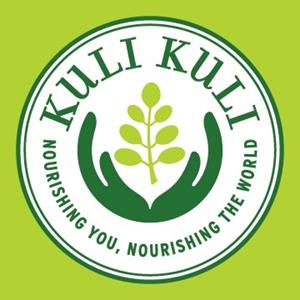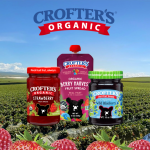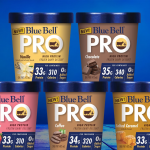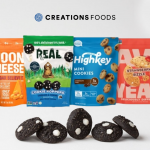Expo West: Kuli Kuli Goes All In On Gummies and Blends
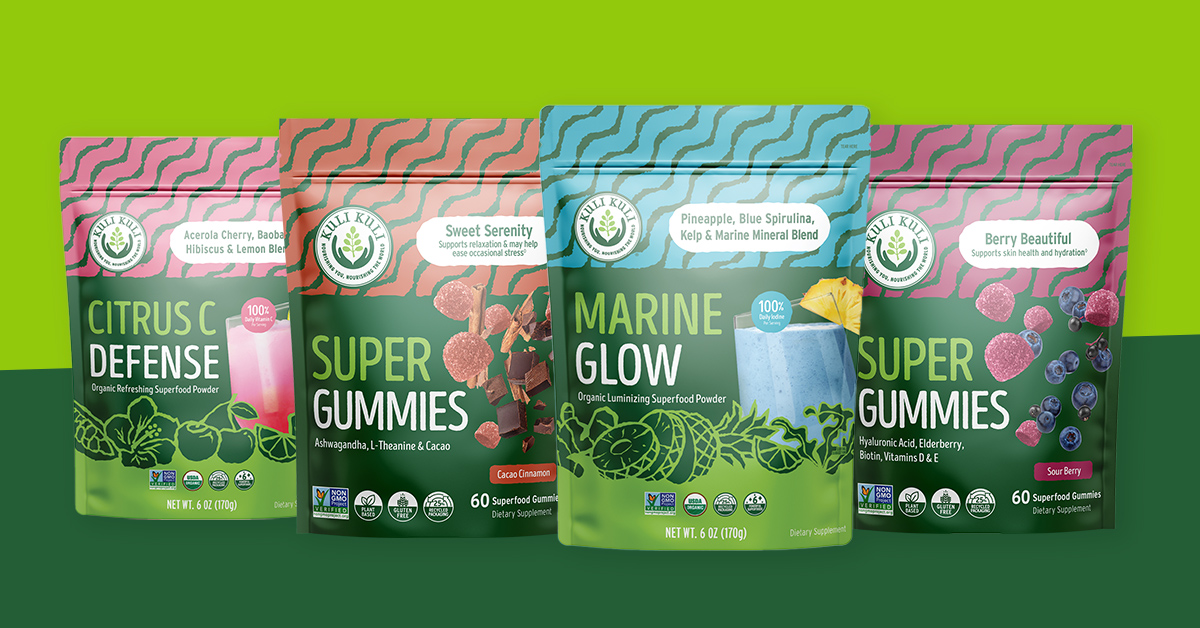
Moringa-focused nutrition company Kuli Kuli (#N2121) announced today it will debut four new products spanning two formats at Natural Products Expo West. But there’s a twist: These will be the brand’s first offerings that do not feature its hero ingredient.
Founder and CEO Lisa Curtis explained that the brand is looking to apply the learnings it has gathered from popularizing moringa in the U.S. and create a “gateway” for other “climate-smart, community-grown, highly-functional superfoods.”
The four new products include two SuperGummy varieties in Berry Beautiful (Baobab, Elderberry and Blueberry) and Sweet Serenity (Cacao and Cinnamon) as well as two Superfood blends in Marine Glow (Spirulina, Kelp and Marine Minerals) and Citrus C Defense (Acerola Cherry, Baobab and Hibiscus). The products will launch nationwide with Sprouts Farmers Market for $24.99 per 60 gummies and $19.99 for a 28-serving pack of smoothie blends.
“We’ve learned a lot over the past 10 years of building moringa from a pretty unknown ingredient,” said Curtis, highlighting that the drought-tolerant ingredient has been featured on many top trends lists in the past decade, including two separate features on Whole Foods’ predictions list. “The biggest thing we’ve learned is that in introducing something unfamiliar like moringa it’s really helpful to learn to lean into what the benefit is to consumers.”
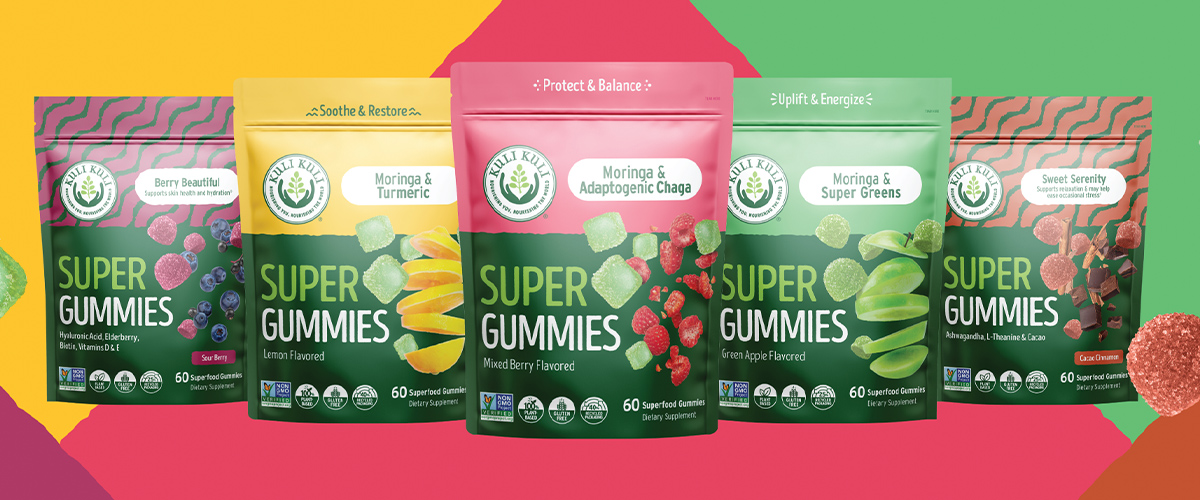
While a consumer might not know what baobab is, Curtis explained that with the new products they will be able to understand the ingredient’s function whether it is for skin health or sleep. With its Berry Beautiful gummies, Kuli Kuli also leaned into sour flavors after Curtis said she noticed the taste profile’s popularity growing in the candy set but a lack of sour within supplement positioned products.
The gummy product has not only opened up new opportunities for the brand, but also it has helped expand its primary customer base. Kuli Kuli typically resonated with consumers in their late 30s to early 50s, but she noted that the gummy format has caught on with younger Gen Z audiences. Curtis believes these formats also helped elevate the brand within the functional food space where it is now among the top-five selling brands within both Whole Foods and Sprouts’ functional assortments.
Alongside the new entrants, Kuli Kuli is also in the process of sunsetting its SuperBark line due to the high cost of producing the chocolate-based snack and tough competition in the candy category, Curtis said. The brand has tested a wide variety of formats over the years as it looked to get U.S. consumers to buy into moringa including bars, energy shakes and moringa teas. Some of those formats, like moringa bars and teas, remain online exclusives.
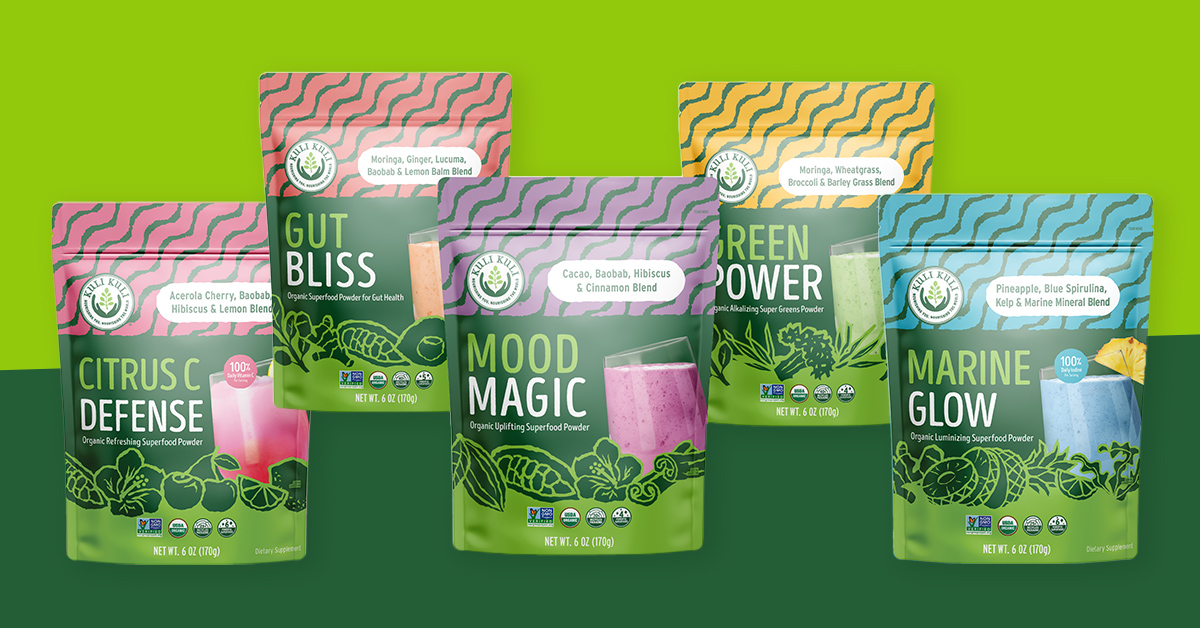
But Curtis said that over the past year, the brand has grown 94% in the natural channel and 28% in conventional, according to sales data from SPINS and Nielsen, respectively. The majority of that momentum has been driven by its newer gummy and blend formats, Curtis said. The brand’s Pure Moringa Powder remains its best selling product, and it sells a total of 14 SKUs at over 11,000 stores nationwide including Whole Foods, Walmart, Sprouts, The Vitamin Shoppe, CVS and more.
The decade-old company is currently the largest moringa brand in the world. Curtis believes that it can continue to leverage that expertise, and the capabilities of its established women-led farmer network, to harvest a wider variety of superfood ingredients. That includes crops for its latest innovations, like baobab, an ingredient that Curtis said has a fairly undeveloped supply chain.
“It allows us to build on an expertise of what we’ve learned with moringa – how to introduce an unknown superfood, how to build a sustainable supply chain around a specialty crop and be able to introduce more climate-smart, nutrient-rich crops into our diet,” Curtis explained. “As our climate changes our diet needs to change with it.
“The most common ingredients are like wheat, corn and soy,” she continued. “Those are not the most sustainable crops, [and] they’re not the most nutritious either. There are so many other plants that could really benefit U.S. consumers, benefit our planet and could also really benefit the communities that cultivate them, so I feel like we are in a good place to kind of be at the bleeding edge of [that].”

